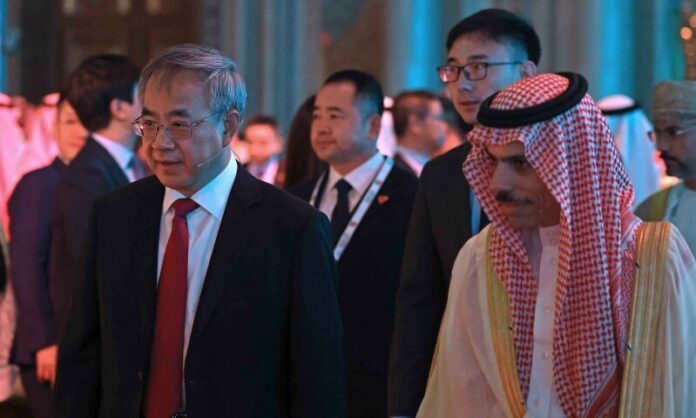Economic vents in the Middle East are moving at a break-neck speed, led by the Chinese engagement like never before. The China Arab States Summit last December had set the stage for the transformative changes that the region is undergoing.
In his Keynote Speech at the first China-Arab States Summit President Xi Jinping had underscored the importance of carrying forward the spirit of China-Arab Friendship featuring solidarity and mutual assistance, aquality and mutual benefit, and Inclusiveness. Xi had also underlined “mutual learning and jointly building a China-Arab Community with a Shared Future in the New Era.”
The 10th Arab-China Business Conference in Riyadh (June 11) is yet another manifestation of that economic transformation. saw the signing of 30 investment agreements worth $10 billion across various sectors including technology, renewables, agriculture, real estate, minerals, supply chains, tourism, and healthcare.
On the first day of the summit, the Saudi government signed multiple deals with several Chinese entities for projects including a joint venture for automotive research, development, manufacturing and sales, development of tourism and other apps, and production of rail wagons and wheels in the Kingdom.
Highlights of the Ist Day
# A $5.6 billion agreement between the Kingdom’s Investment Ministry and Human Horizons, a Chinese developer of autonomous driving technologies and manufacturer of electric cars under the HiPhi brand, to establish a joint venture for automotive research, development, manufacturing and sales.
# A $266 million deal signed by Saudi Arabia with Hong Kong-based Android developer Hibobi Technology Ltd. to develop tourism and other apps.
# A $250 million deal facilitated by Investment Ministry between Saudi railway company SABATCO and Chinese state-owned and publicly traded rolling stock manufacturer CRRC to manufacture rail wagons and wheels in the Kingdom.
# A $150 million deal between Investment Ministry, the Ministry of Industry and Mineral Resources and Chinese industrial manufacturer Sunda to manufacture caustic soda, chlorine and derivatives, chlorinated paraffin, calcium chloride, polyvinyl chloride, and related conversion products in the Kingdom. Observers say the Saudi-China strategic partnership is likely to cross over into multiple domains and will be truly unprecedented in its nature, scale, and impact. They also call it a tectonic shift in geopolitical terms. Another way to see it is as the coming together of two civilizations (Arab and Chinese) and not just two countries. China’s foray into the Middle East – as part of the expansion of it’s Belt & Road Initiative – just got catapulted to a whole new level, says Hasan Aslam Shad,




